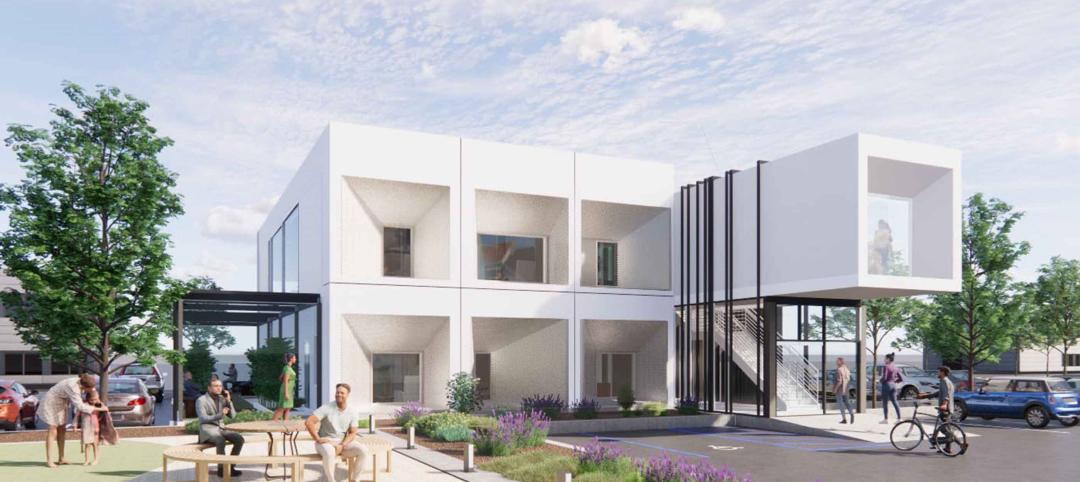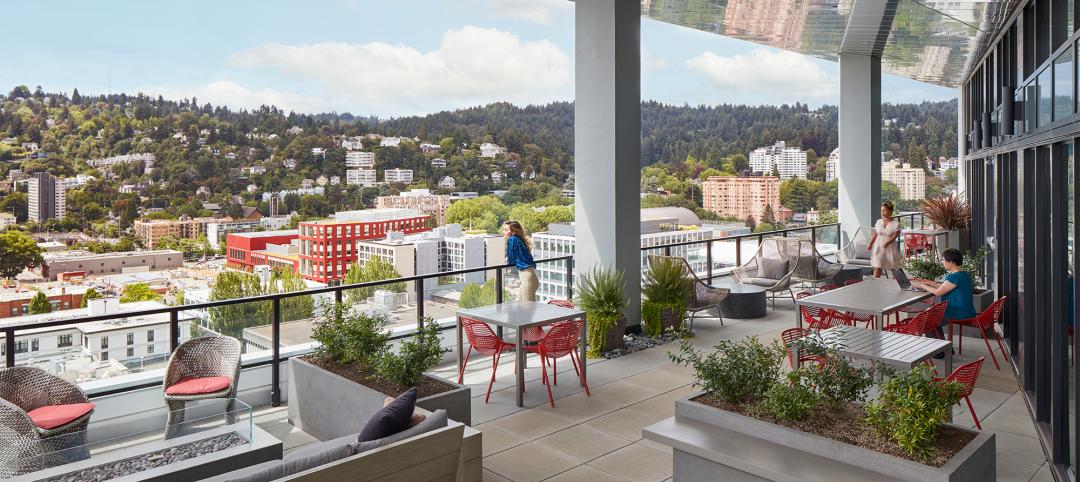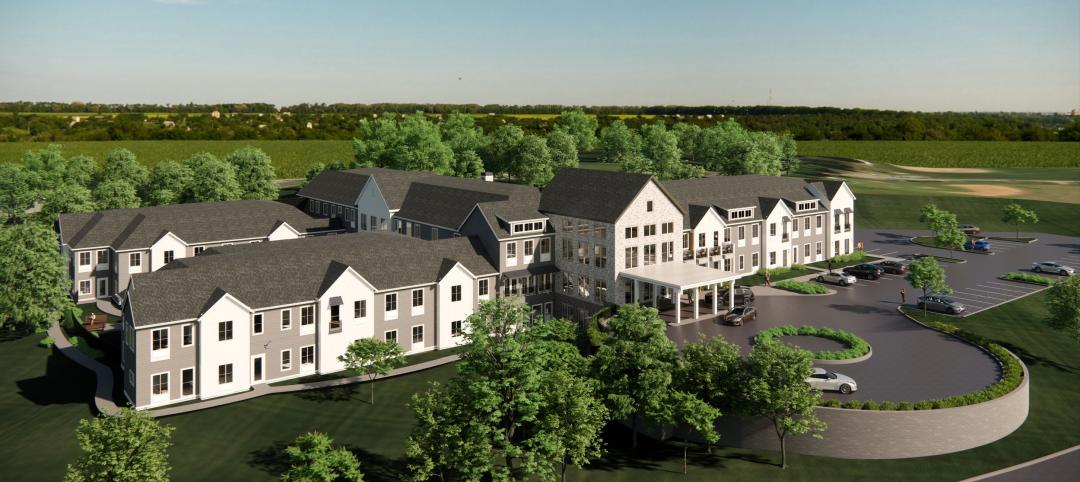Richard Rubin sees the current spate of empty hotels, motels, retail, and office spaces created by the pandemic as opportunities for adaptive reuse to affordable housing, which is in perennially short supply in many markets in the U.S. and around the world.
Rubin is CEO of Repvblik, a Los Angeles-based company that specializes in such conversions. He and his partner Chris Potterpin of PK Housing Michigan—which is part of a multistate property management company that includes a development and construction division—have several hospitality-to-housing projects in the works in the Midwest, including the conversation of a hotel in Stillwater, Okla., to 141 units of student housing located a mile from Oklahoma State University that should be ready for occupancy this fall.
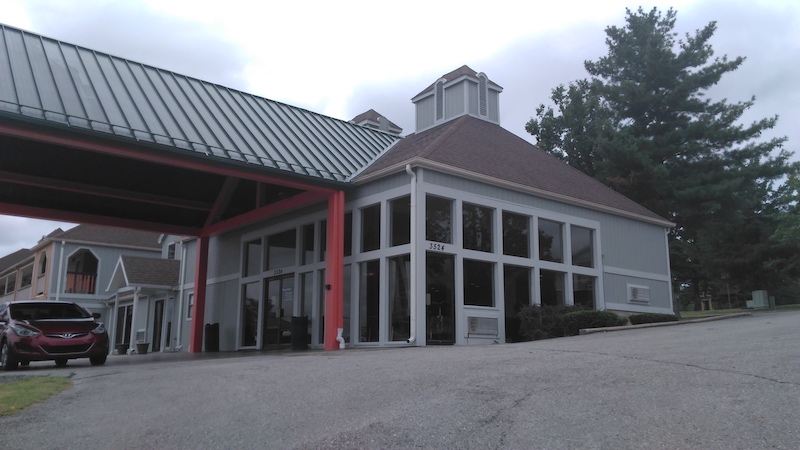 Plato's Cave is an adaptive reuse of a Days Inn in Branson, Mo. When completed it will have 341 rentable apartments, each of which with a kitchen that was installed by the developer. Images: Repvblik
Plato's Cave is an adaptive reuse of a Days Inn in Branson, Mo. When completed it will have 341 rentable apartments, each of which with a kitchen that was installed by the developer. Images: Repvblik
Repvblik’s most ambitious project to date is the conversion of a 420-key Days Inn within six buildings on 14.5 acres in Branson, Mo., which had been vacant for at least eight years, to Plato’s Cave, which when completed next year will offer 341 rentable apartments. The first phase, with nearly 170 units, opened recently and was renting for between $495 and $695 per month. “Branson is leasing very well,” says Rubin in an interview with BD+C last week.
The hotel rooms were 285 sf. Some of the hotel units were combined into one apartment. Repvblik added kitchens, installed sprinklers in four of the buildings, and built a clubhouse, fitness center, and exterior fencing. Rubin estimates that this project, including the amenities, cost between $15,000 and $20,000 per unit converted, with most of the work being done by the company’s internal construction crews. “It’s a heavy lift, but not as heavy as a greenfield project,” he says.
His financing for the projects in Missouri and Oklahoma is a combination of syndicated equity, construction loans, and permanent debt financing.
TRANSFERRING IDEAS FROM HIS HOMELAND
Rubin, a South African, came to the U.S. in 2015 for a student housing conference in Austin, Texas, and decided to stay. (He was particularly attracted to living in southern California.) In the 10 years before his arrival, Rubin was managing director for AENGUS Property Holdings, a “turnkey” developer focused on urban renewal.
He recalls that in the early 2000s, Johannesburg decentralized its business district, which led to a series of company relocations and vacant high rises. Rubin approached REITs that owned some of those high rises about converting their spaces into affordable rental units, which he started doing in 2004. He says that over the following decade, AENGUS converted “several million square feet” of commercial office space into workforce housing.
After he emigrated to the U.S., it took him a few years to get the lay of the land. He and Potterpin formed Repvblik in 2016-17, and the company initially looked for adaptive reuse opportunities in Detroit. The company is now homed in on the Midwest, where Rubin claims there are “hundreds” of hotels and motels that are either vacant because of the COVID-19 virus, semi occupied, or have been closed for several years.
Aside from the Stillwater and Branson projects, Repvblik has two hotel-to-workforce housing conversions in the works in Michigan, and one in Ohio. He declined to specify which markets in each state.
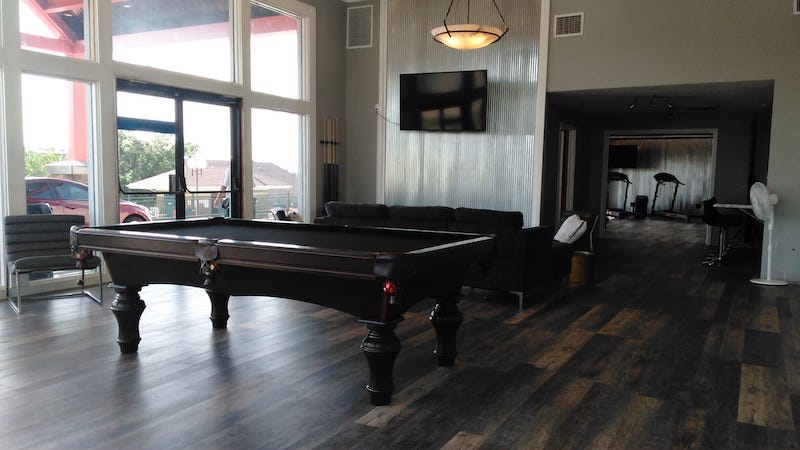 A common area in Plato's Cave includes a billiards table and fitness center. Image: Repvblik
A common area in Plato's Cave includes a billiards table and fitness center. Image: Repvblik
COMPARED TO OTHER CRES, AFFORDABLE HOUSING IS LOOKING BETTER
Putting on his sales cap, Rubin is convinced that now is the time for investors to jump into affordable housing. The conventional places where they might have parked their money previously, like retail malls or hospitality, have been decimated by the pandemic, and there’s no telling what “recovery” will look like for either.
On the other hand, Rubin states, there’s are always opportunities in affordable housing because “there’s so little of it.” Rubin calls this the “missing middle.” And with unemployment at its highest levels in generations, the need to provide individuals and families with places to live they can afford has rarely been more pressing.
Related Stories
Office Buildings | Jun 3, 2024
Insights for working well in a hybrid world
GBBN Principal and Interior Designer Beth Latto, NCIDQ, LEED AP, ID+C, WELL AP, share a few takeaways, insights, and lessons learned from a recent Post Occupancy Evaluation of the firm's Cincinnati, Ohio, office.
MFPRO+ Special Reports | May 6, 2024
Top 10 trends in affordable housing
Among affordable housing developers today, there’s one commonality tying projects together: uncertainty. AEC firms share their latest insights and philosophies on the future of affordable housing in BD+C's 2023 Multifamily Annual Report.
K-12 Schools | Apr 29, 2024
Tomorrow's classrooms: Designing schools for the digital age
In a world where technology’s rapid pace has reshaped how we live, work, and communicate, it should be no surprise that it’s also changing the PreK-12 education landscape.
Healthcare Facilities | Mar 18, 2024
A modular construction solution to the mental healthcare crisis
Maria Ionescu, Senior Medical Planner, Stantec, shares a tested solution for the overburdened emergency department: Modular hub-and-spoke design.
Office Buildings | Mar 8, 2024
Conference room design for the hybrid era
Sam Griesgraber, Senior Interior Designer, BWBR, shares considerations for conference room design in the era of hybrid work.
Airports | Jan 15, 2024
How to keep airports functional during construction
Gensler's aviation experts share new ideas about how to make the airport construction process better moving forward.
Apartments | Jan 9, 2024
Apartment developer survey indicates dramatic decrease in starts this year
Over 56 developers, operators, and investors across the country were surveyed in John Burns Research and Consulting's recently-launched Apartment Developer and Investor Survey.
MFPRO+ Special Reports | Jan 4, 2024
Top 10 trends in multifamily rental housing
Demographic and economic shifts, along with work and lifestyle changes, have made apartment living preferable for a wider range of buyers and renters. These top 10 trends in multifamily housing come from BD+C's 2023 Multifamily Annual Report.
Urban Planning | Dec 18, 2023
The impacts of affordability, remote work, and personal safety on urban life
Data from Gensler's City Pulse Survey shows that although people are satisfied with their city's experience, it may not be enough.
Senior Living Design | Oct 30, 2023
Navigating architectural challenges—from 'unbuildable' to unbelievable
Mick Schaefer, AIA, NCARB, LEED GA, recounts the challenges Vessel Architecture & Design had to overcome while designing a state-of-the-art senior living facility.





